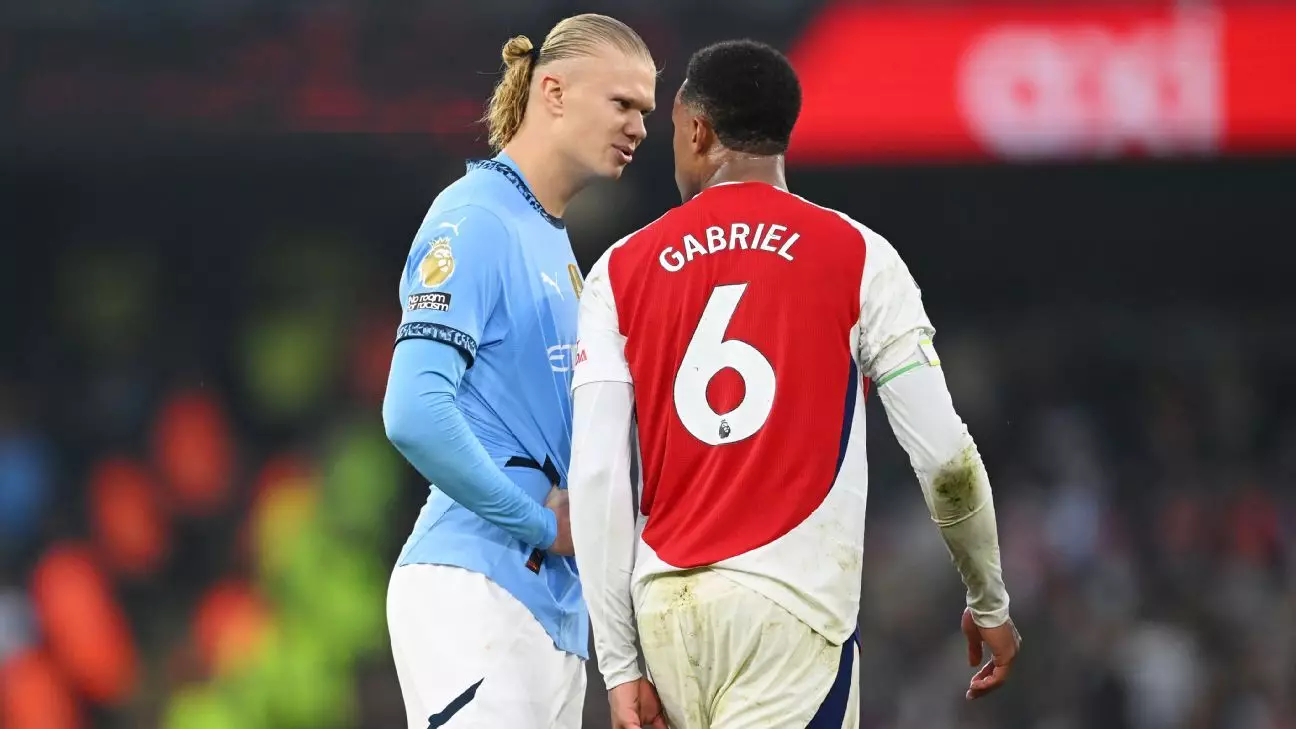In a riveting encounter between Manchester City and Arsenal, the tension escalated dramatically in stoppage time following John Stones’ equalizer, which made the score 2-2. In a moment of heated emotions, Erling Haaland, a key player for City, was caught on camera throwing the ball at Arsenal defender Gabriel Magalhães. This seemingly minor act of frustration has stirred quite a conversation among fans, players, and pundits alike, highlighting not just on-field behavior but the underlying emotions that can erupt during intense matches.
Interestingly, the incident was missed by the on-field referee, Michael Oliver, indicating a potential shortfall in refereeing during high-pressure situations. However, the video assistant referee (VAR), John Brooks, reviewed the footage and ultimately determined that Haaland’s actions did not meet the threshold for violent conduct. The decision has sparked discussions regarding the effectiveness of VAR in maintaining discipline on the pitch. The FA subsequently confirmed that no retrospective action would be taken against Haaland, indicating satisfaction with how the matter was handled in real-time. Critics, however, might argue that these missed opportunities for disciplinary action could undermine the integrity of the game and lead to a lack of accountability among players.
The emotions didn’t stop with the final whistle. Following the game, Haaland was seen in a heated exchange with Arsenal manager Mikel Arteta and striker Gabriel Jesus. The confrontation accelerated the already charged atmosphere, especially given City’s grievances about what they perceived as time-wasting tactics from Arsenal after their teammate Leandro Trossard was sent off. City defender Manuel Akanji’s remarks reflect the frustrations the team felt, indicating they believed Arsenal was deliberately trying to manipulate the game’s pace. This raises questions about sportsmanship and how teams navigate the boundaries of competitive play.
Another notable exchange occurred when Haaland warned Arteta to “stay humble”—a phrase that echoes a sentiment often preached in professional sports yet frequently disregarded in moments of triumph or rivalry. The player’s choice of words could portray Haaland as a passionate competitor, yet it risks casting a shadow over his professionalism. The altercation with Jesus, where he referred to the Arsenal striker as a “clown,” reflects growing animosities that can complicate team dynamics even amongst adversaries.
Amidst the drama, Manchester City’s manager, Pep Guardiola, faces looming selection challenges as the team gears up for their Carabao Cup fixture against Watford just 48 hours later. With Kevin De Bruyne sidelined with a thigh injury, Guardiola may need to employ strategic rotation, potentially fielding an entirely different lineup. The juxtaposition of on-field tensions and managerial decisions paints a complex picture of a team under pressure, both mentally and strategically.
The fallout from Haaland’s actions serves as a microcosm of the broader themes in modern football—intense rivalries, the scrutiny of officiating, and the emotional toll on players and coaches alike. As the season progresses, how these dynamics evolve will be a critical component to not only on-field performance but also the overall culture within the sport.

